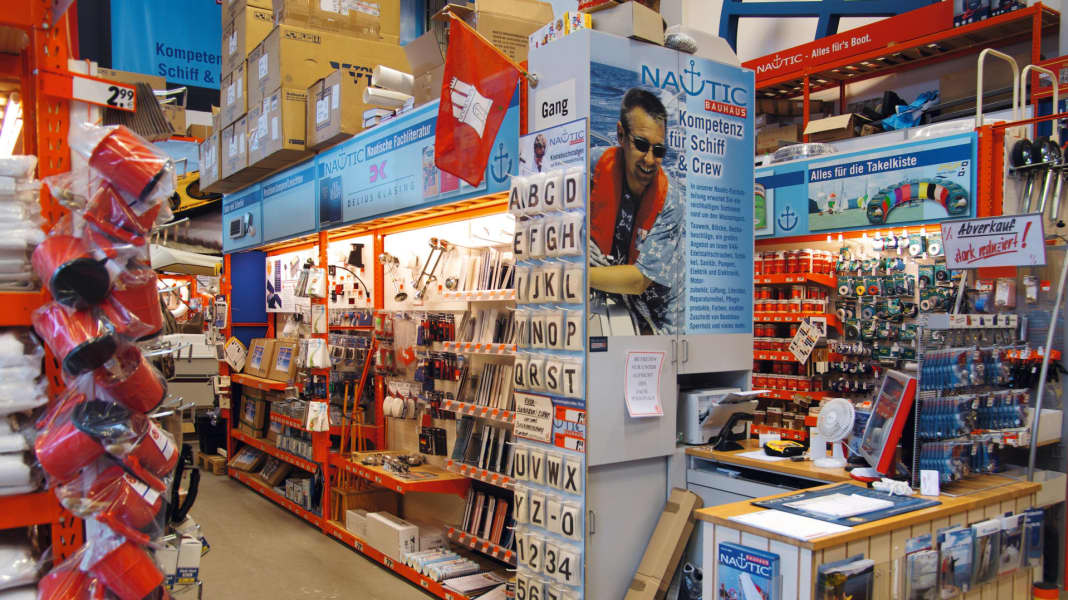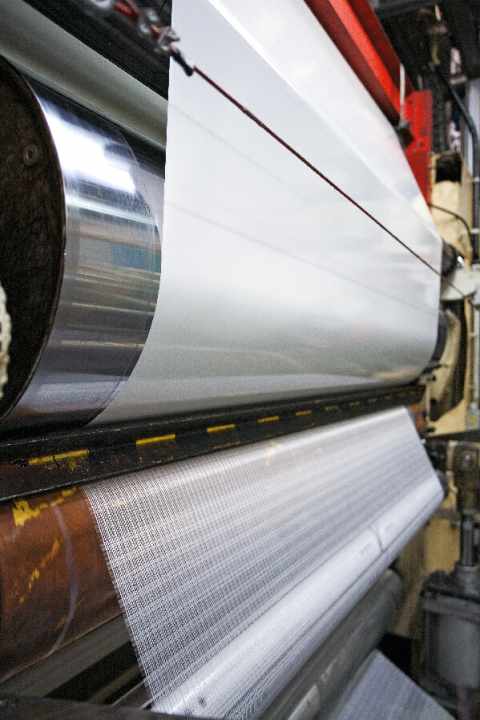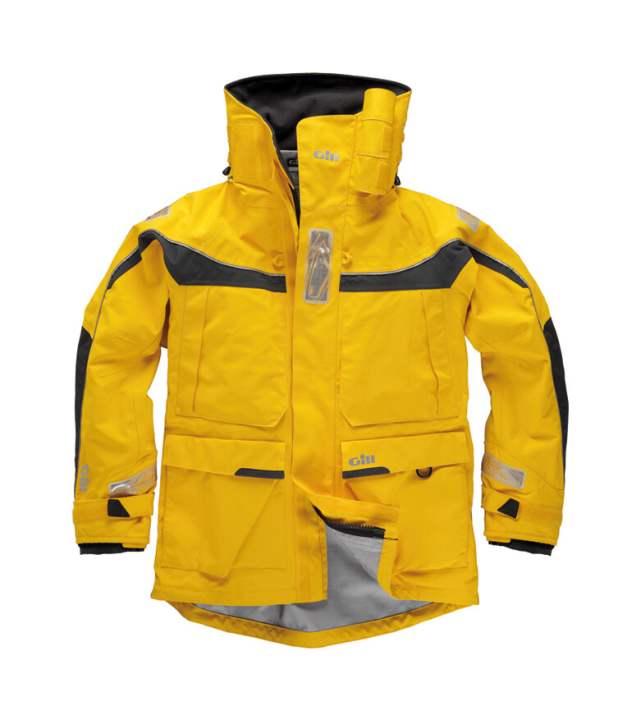Report on price increases: Will sailing soon be too expensive? Part 2: Outfitters and sailmakers
YACHT-Redaktion
· 08.01.2022

Click here for the other articles in this series
Order books are full and many new owners are equipping or renovating their new or used boats. The pandemic-related restrictions on travel and holidays are giving water sports a boost in Germany. However, there are increasing problems meeting delivery deadlines and prices are also rising.
These are not problems that are exclusive to the water sports industry - prices are rising in almost all areas and delays are almost normal. There are many reasons for this, one of which is the upswing mentioned at the beginning: a phase of standstill at the start of the pandemic was followed by an extreme increase in demand. In the electronics sector, more laptops, screens and devices for quickly setting up workstations at home were ordered. As a result, the automotive industry, among others, is lacking important semiconductor components. There is a similar shortage of raw materials in other industries, such as aluminium, where the price has risen sharply. Global transport has also changed dramatically. While some freight routes between China, Europe and North America were no longer profitable before the pandemic, prices shot up by up to 500 per cent afterwards.
In the following: Assessments on the development of dealers and sailmakers (from YACHT 24/2021).
Sailmaker

The tense situation due to rising raw material prices and expensive freight rates is also affecting sailmakers. Stefan Voss from UK Sailmakers believes that price increases are unavoidable. "We expect a price adjustment. Everything has simply become more expensive. UK Sails has been able to deliver comprehensively and almost without delay over the past two years, which is due to our foresighted stock-keeping. But the fabric manufacturer Dimension-Polyant will not be able to maintain its prices because its suppliers have also announced some drastic increases."
Jens Nickel from Segelwerkstatt Stade takes an even more serious view of the situation: "Supply bottlenecks are now a real issue. I've been in this business for 40 years now, but I've never experienced anything like it. We wait at least weeks, sometimes even months, for our most important cloths. The manufacturers have failed to build up stocks and are now unable to obtain raw materials such as yarns themselves. We are really worried about the situation. I'm expecting price increases at the beginning of 2022."
Christian Heinritz from Oeverdiek & Heinritz has already had to deal with increased prices: "Our major suppliers sent us the new price list at the beginning of October, which usually only arrives at the beginning of the year. We have to increase prices by five per cent. The hourly rate for repairs also has to rise by this amount."
Stefan Matschuk from North Sails also notes "problems with the supply of materials and raw materials from our suppliers. Many materials for sail production are directly linked to the price of oil, which is currently extremely high. Due to the low air freight capacities, the demand for sea freight has skyrocketed and so have the prices." However, Matschuk does not yet see the situation as dramatic: "So far, we have been able to buffer the additional costs that have arisen. It certainly helps that North Sails produces most of the cloth and components itself. And that our 3Di production does not require foils. However, if the situation doesn't improve soon, we will have to adjust our prices."
Clothing

At Peter Frisch, importer of clothing brands such as Musto, Zhik and Lizard, Hubertus Jürgens sees a significant catch-up effect in 2021. The Munich-based company made very good purchases in 2020 and had well-stocked warehouses. Sales were then very good this season, with Zhik in particular performing well. However, the company is now feeling the effects of price increases and supply bottlenecks. "We are trying to keep price increases moderate. However, the development is very difficult to predict. We are fighting with our suppliers for good availability," says Jürgens. There are extreme price fluctuations, especially for neoprene products, which are mainly produced in Thailand. Laminates such as GoreTex are also becoming more expensive. "It's partly critical, but not hopeless." Jürgens does not see the coming season in danger: "Everything will be available at the start of the season."
German Gill dealer Gunnar Struckmann bemoans the difficult economic and logistics conditions: "We are keen to offer our customers the best value for money. However, we are unable to fully absorb the situation in the logistics sector and the massive price increases in production and raw materials. As a result, we will unfortunately not be able to avoid higher prices." Gill had a difficult start due to Brexit at the beginning of the year; additional bureaucracy caused by customs clearance resulted in delayed deliveries. Ten days was normal, but sometimes the waiting time was up to four weeks. Now it is three to five days again. However, delays simply have to be expected at the moment, says Struckmann. The rainy August led to strong demand for oilskins, meaning that some colours and sizes were sold out. However, Gill is able to deliver, says Struckmann. The warehouses are already full for the coming season.
Motors

Manuel Keinberger, Managing Director of engine specialist Kiesow in Kappeln: "There were massive delivery problems in the summer, especially for larger engines with common rail technology." He also cites a particularly drastic example where the delay in delivery ruined a sailor's entire season planning: "One customer had to wait 16 weeks for a new engine. That means he brought the boat in for an engine replacement in the spring. The delivery was delayed further and further until the boat finally left the water in autumn with only twelve operating hours. That was basically just the test drive." There were further difficulties with the availability of control units for parking heaters.
In the meantime, the delivery situation has improved again. According to Keinberger, however, just-in-time delivery has not worked reliably for more than two years. A warehouse has therefore been built up again for the usual wear and spare parts, which is to be expanded.
Good planning is very important in view of the difficult delivery situation. For example, they have already ordered the engines from Kiesow for conversions planned for the winter in the summer. Another precautionary measure: Keinberger has ordered six of the 30 hp engines, which are in particularly high demand, for their own account; previously they only had one of these in stock in winter. The price increase for engines and spare parts, on the other hand, is within normal limits.
More planning is also necessary for smaller repairs or maintenance work, as the increased fuel costs are a concern for mobile mechanics. Wherever possible, jobs are bundled together. "No customer wants to pay the travelling costs from Kappeln to Eckernförde for a single oil change. But with a little consultation, a solution has always been found so far," says Manuel Keinberger.
Fittings

The equipment retailer Gotthardt in Hamburg considers itself to be well positioned, with only moderate price adjustments of five per cent having to be implemented so far, according to Finn Möller. However, individual items in the Gotthardt range have become much more expensive, such as the classic glued wooden straps, the price of which has risen by 25 per cent. Plastic products such as fenders have also increased significantly. The reason for this is higher raw material prices. "This affects the yacht industry like everyone else," says Möller. To ensure the availability of goods, Gotthardt has significantly increased its stocks. In some cases, however, problems have also arisen with products manufactured in Europe due to a lack of supplier parts from Asia. "The usual three-week delivery time for a life raft can then quickly turn into eight or ten weeks."
Pfeiffer Marine from Lake Constance generates two thirds of its business with its own products. According to Meinrad Hiller, prices had to be increased by five per cent in the current year 2021 in order to offset the increased raw material costs. The main problem is aluminium, where the price per tonne has risen from 1,600 to 2,800 euros within months. The situation is even bleaker for merchandise. Products from Italy have become around 20 per cent more expensive, and the price increase for parts from the Far East is even between 30 and 40 per cent. Hiller thinks that prices will continue to rise in 2022.

